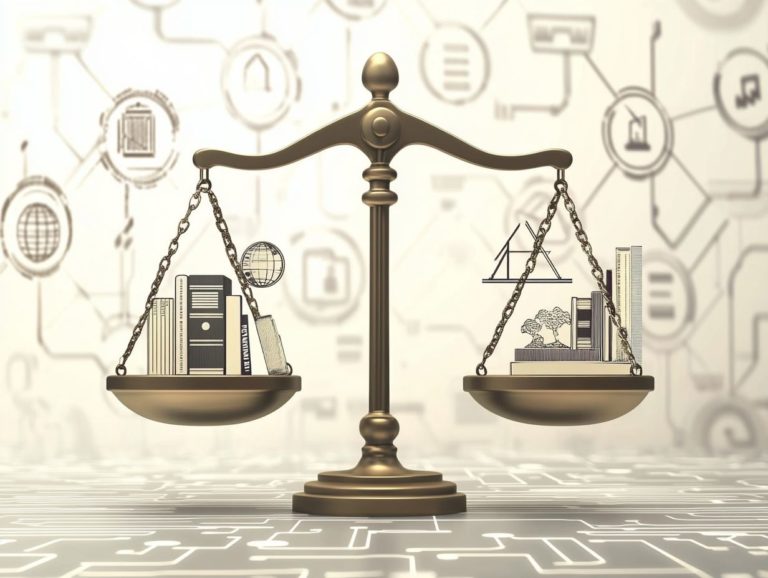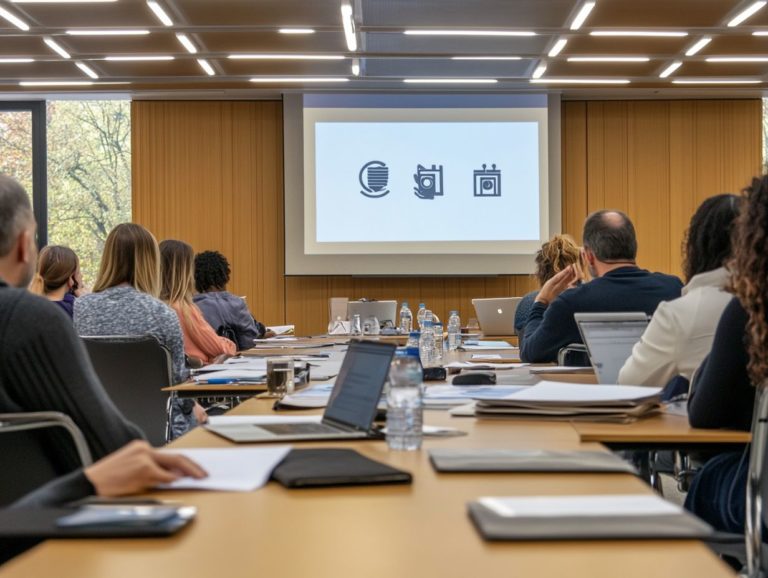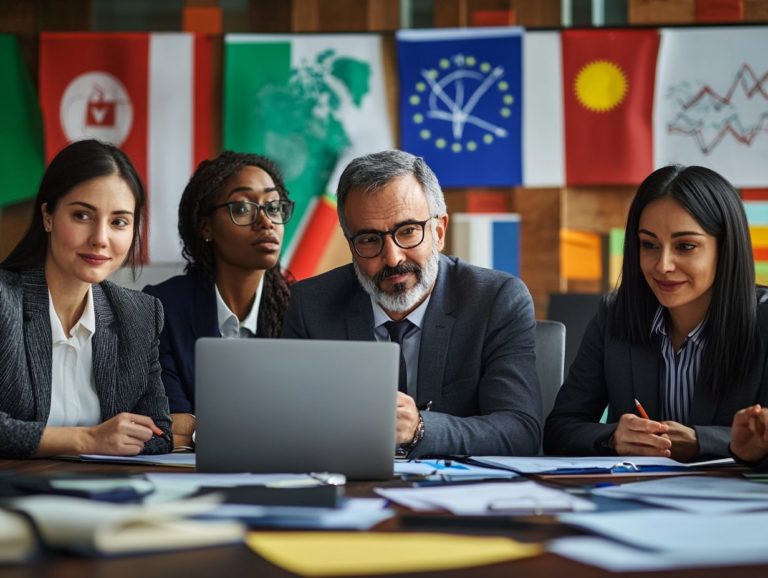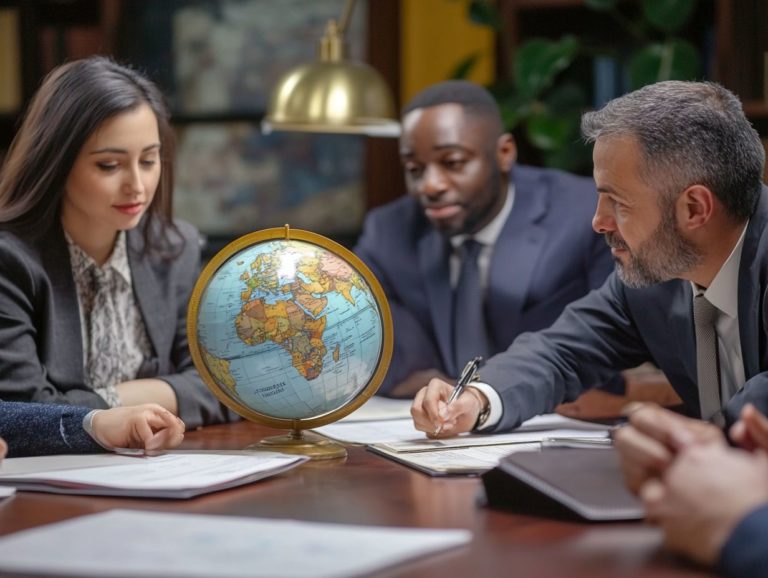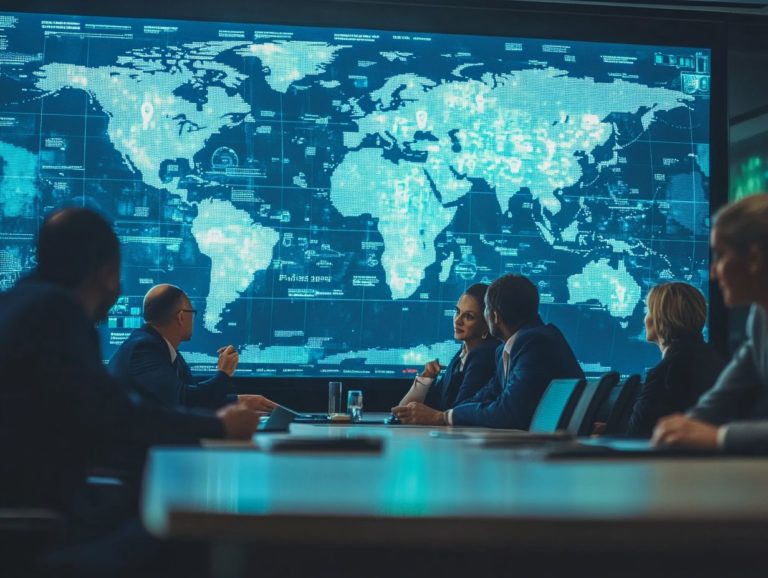The Impact of AI on International IP Law
Artificial Intelligence is changing many fields, including Intellectual Property law. As AI technologies advance, they bring both exciting possibilities and tough challenges.
As AI technologies continue to advance, they introduce both groundbreaking applications and intricate challenges to the legal framework. This article delves into the dynamic relationship between AI and IP law, scrutinizing current regulations, the significant effects of AI innovations, and the ethical dilemmas that emerge.
You will gain valuable insights into the future of IP law in a world driven by AI and learn how to navigate this swiftly evolving landscape.
Contents
- Key Takeaways:
- Defining AI and IP Law
- The Role of AI in IP Law
- Current State of International IP Law
- The Impact of AI on IP Law
- The Future of AI and IP Law
- Addressing Ethical Concerns
- Frequently Asked Questions
- What is the impact of AI on international IP law?
- How does AI impact the concept of intellectual property?
- Does AI have any legal rights to intellectual property?
- How does AI affect the enforcement of international IP laws?
- What measures are being taken to address the impact of AI on international IP law?
- Is there a global consensus on the impact of AI on international IP law?
Key Takeaways:
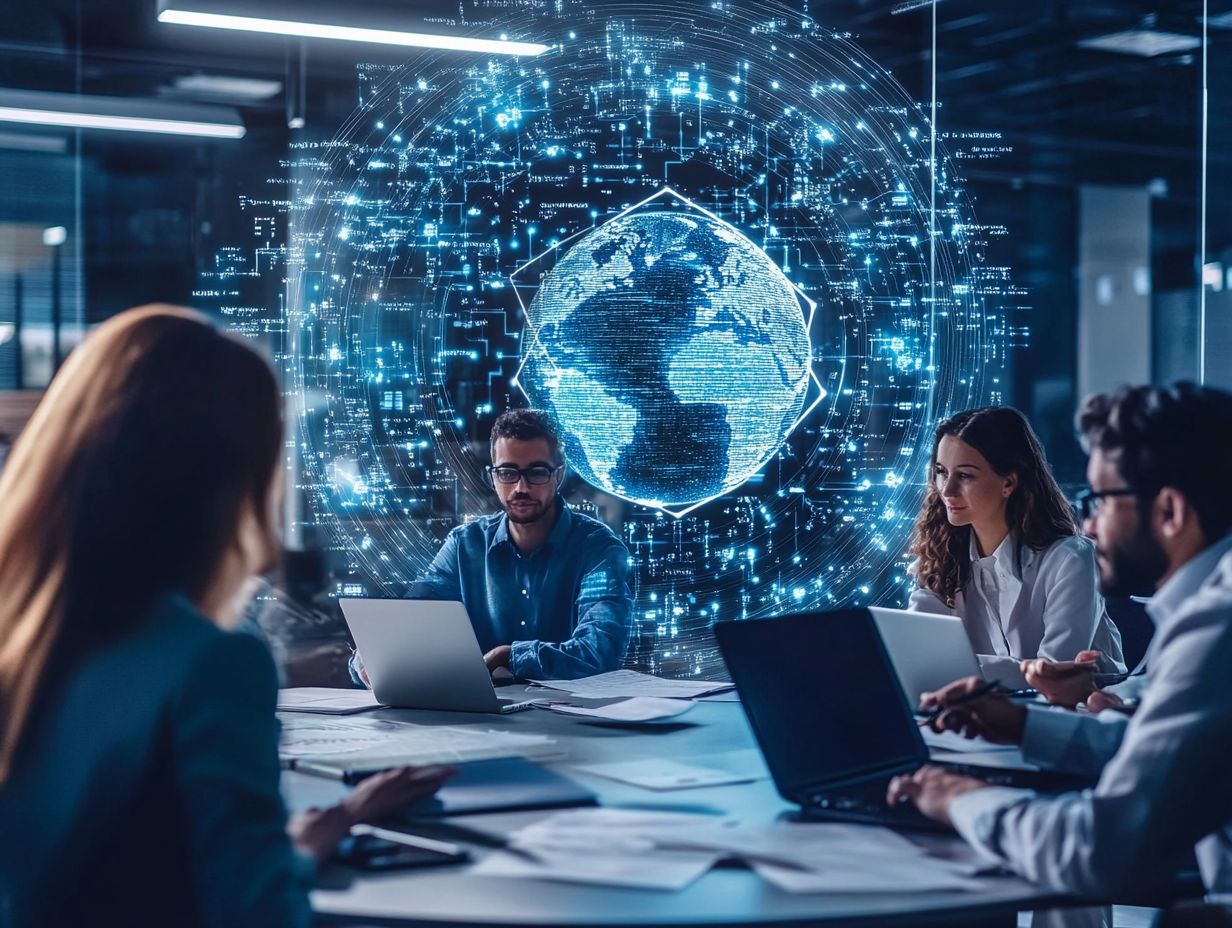
Defining AI and IP Law
Artificial Intelligence (AI) has changed dramatically multiple sectors, sparking intricate debates about Intellectual Property (IP) Law. You might wonder how AI-generated creations fit within established legal frameworks like patent and copyright law.
The emergence of AI technologies has brought forth innovative applications that challenge conventional ideas of authorship and ownership in creative fields. This evolution calls for a thorough reassessment of existing IP legislation, particularly considering the impact of globalization on IP strategy, to ensure it aligns with these groundbreaking advancements.
The Role of AI in IP Law
The role of AI in intellectual property law is becoming increasingly significant as AI innovation propels new avenues for creation and content generation. This evolution raises critical questions surrounding copyright and patent law in the context of AI systems and their outputs.
With generative AI technologies like DALL E 2 and Midjourney producing unique AI-generated content, the need for clear intellectual property rights concerning these creations is critically urgent now.
Applications of AI in IP Law
AI applications are transforming the landscape of intellectual property management, enabling you to analyze copyright and patent law more effectively.
From automated content creation to sophisticated data analysis, these AI technologies significantly enhance your ability to track and protect IP rights. For example, machine learning algorithms can now scan extensive databases of creative works to identify potential infringements, allowing you to respond swiftly to any threats that may arise.
Companies in industries like pharmaceuticals and technology have already harnessed AI-driven tools to streamline the patent application process, slashing the time required to secure IP rights. Consider the case of a leading tech firm that employed AI to sift through millions of patent documents, dramatically boosting their capacity for innovation while minimizing the risk of costly legal disputes.
Such applications not only improve operational efficiency but also empower you to proactively safeguard your intellectual assets.
Challenges and Limitations
Despite the remarkable advancements brought about by AI technologies, you ll find that significant challenges and limitations still loom in the realm of IP law, especially when it comes to AI risk management and the legal implications surrounding AI-generated work.
AI compliance and regulation are increasingly necessary, as copyright law struggles to keep pace with the rapid evolution of AI.
As AI continues to weave itself into the fabric of creative processes, it inevitably raises intricate questions about ownership and authorship concerning content generated by algorithms. The current regulatory frameworks often fall short in effectively addressing AI-generated content, creating compliance hurdles for businesses and innovators alike.
If you re leveraging AI, you might face uncertainty around liability issues and potential infringement cases, further underscoring the pressing need for adaptive legislation.
To safeguard intellectual property effectively, it s essential for all stakeholders to collaborate in redefining legal boundaries and creating a flexible regulatory environment that can flexibly respond to technological advancements. This evolution in law will be vital in striking a balance between fostering innovation and upholding the protections that intellectual property rights are designed to provide.
Current State of International IP Law
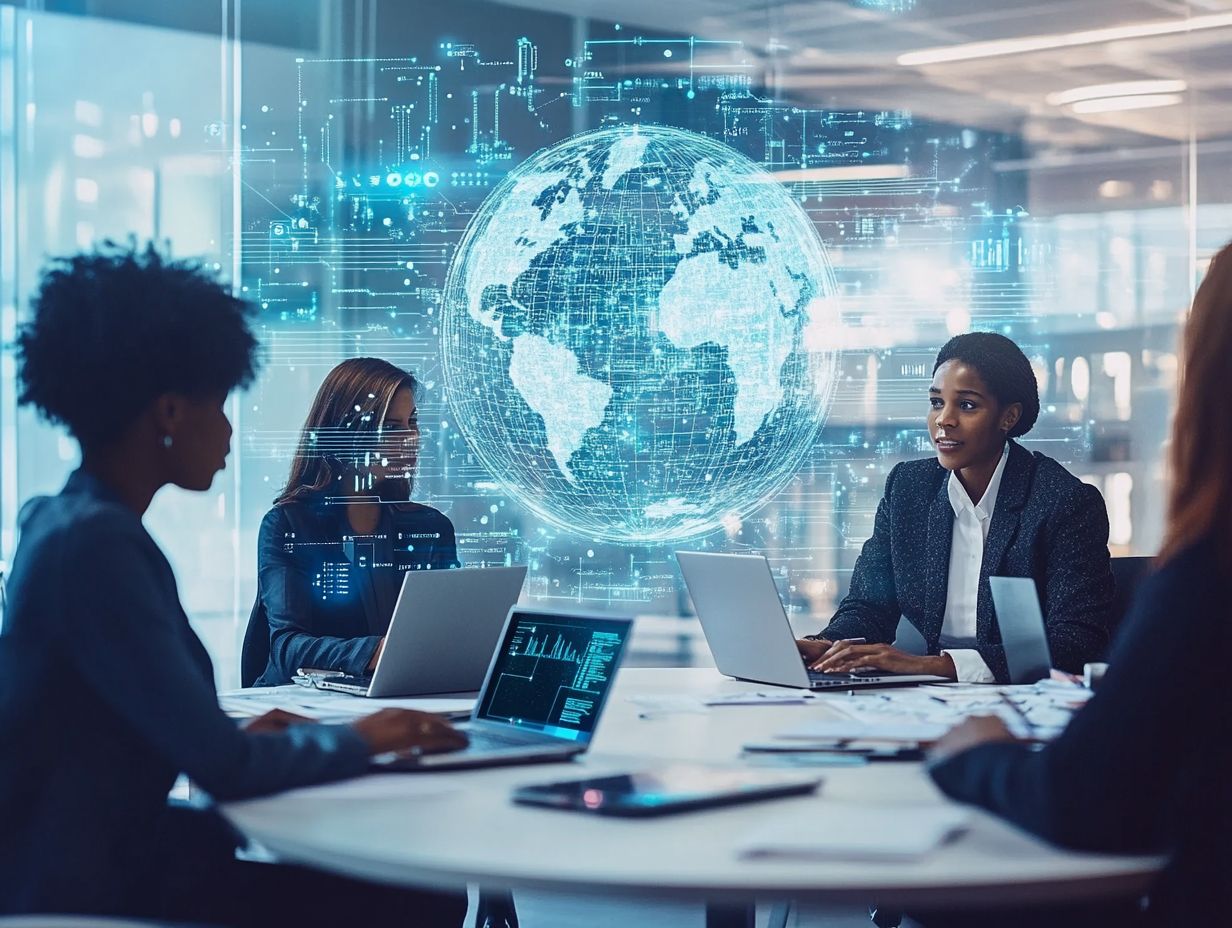
The current landscape of international intellectual property (IP) law is evolving and is significantly shaped by the rise of AI technologies. Understanding the impact of AI on patent law is crucial in addressing the urgent demand for regulations that effectively navigate these complexities.
In various international forums, including the WIPO, there is a robust discussion on how to integrate AI regulation into existing legal frameworks. The European Commission is exploring new approaches to copyright and patent law to ensure alignment with advancements brought about by AI.
Overview of Current IP Laws and Regulations
Current IP laws and regulations aim to safeguard the rights of creators while balancing the need for innovation, especially in areas influenced by AI. As AI compliance grows increasingly vital, examining these laws reveals gaps that need addressing to protect intellectual property rights effectively.
In copyright law, there are lingering questions about ownership when AI generates original content. This raises the question of who actually holds the rights.
Patent law also faces challenges in determining how to handle inventions collaboratively developed by humans and AI systems. These evolving considerations highlight the urgent need for reform.
Existing frameworks may not adequately address the distinct characteristics of AI innovations. Policymakers should prioritize establishing clearer guidelines that define rights and liabilities.
This will ensure that both human and artificial contributions receive the recognition and protection they deserve.
The Impact of AI on IP Law
The impact of AI on intellectual property law is profound. Generative AI technologies challenge established practices and create new dynamics within copyright and patent law, highlighting the role of technology in shaping international IP law.
This evolution is shifting the landscape of IP incentives. As AI-generated content gains mainstream acceptance, the implications for ownership, rights, and legal protections are evolving.
Advancements and Disruptions
AI advancements are reshaping traditional concepts of intellectual property law. New legal implications demand careful consideration as AI-generated content becomes more commonplace.
This evolution has real effects for creators and consumers alike. The shift from human authorship to machine-generated works prompts critical questions about authorship rights and the level of protection available.
As the boundary between human creativity and artificial intelligence becomes increasingly indistinct, courts may need to reassess established definitions within copyright law.
This creates an intersection between technology and law, necessitating dialogue among legal experts, technologists, and policymakers. Together, we must navigate this landscape to forge a balanced approach that fosters innovation while safeguarding intellectual property rights.
The Future of AI and IP Law
The future of AI and intellectual property law is rapidly approaching a critical turning point. Understanding the impact of globalization on IP litigation is essential, as emerging trends in AI regulation require proactive adaptation of legal frameworks.
As discussions at esteemed platforms like the WIPO forum gain traction, implementing comprehensive AI compliance measures is essential in shaping the evolution of IP law.
Stay informed and ready to adapt as these changes unfold!
Predictions and Potential Changes
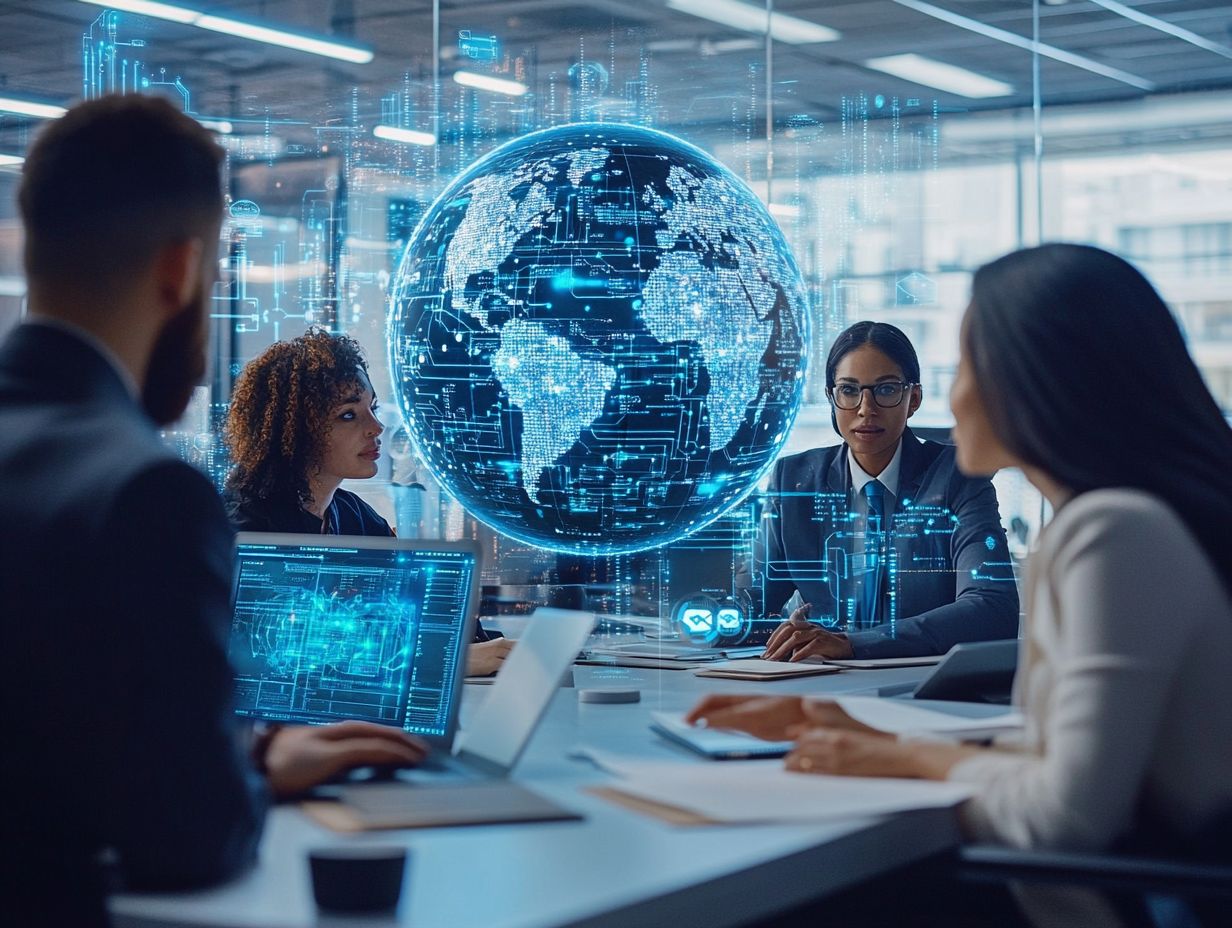
Predictions regarding AI’s impact on IP law indicate that significant changes are on the horizon, particularly in copyright law and IP rights, as the influence of AI on IP strategy leads to new compliance frameworks emerging.
These changes aim to tackle complexities introduced by AI-generated work while enhancing protections for creators and innovators.
As artificial intelligence evolves, the intersection of technology and intellectual property becomes increasingly intricate. Stakeholders will see a shift in how ownership is defined, with ongoing debates about whether AI-generated content should receive the same protections as human-created works.
Regulatory bodies are expected to roll out new guidelines to ensure compliance, balancing the rights of original creators with the capabilities of AI systems. This evolving landscape could lead to a more robust framework that safeguards existing IP rights and fosters innovation in AI technologies.
Addressing Ethical Concerns
Addressing ethical concerns surrounding AI technologies is crucial for ensuring fairness and accountability in intellectual property rights.
As AI-generated content expands, consider the ethical implications related to ownership, attribution, and potential misuse.
These issues are increasingly important for lawmakers and creators as they navigate this evolving terrain.
Ensuring Fairness and Accountability
Ensuring fairness and accountability in AI-generated work demands a careful examination of intellectual property rights and ethical considerations. You and other stakeholders should create strong frameworks that protect creators and navigate the complexities introduced by AI technologies.
This journey involves developing clear legal guidelines for ownership of AI-generated content and ethical standards that promote transparency in AI processes.
By advocating for comprehensive policies, you can collaborate with various stakeholders to prevent misuse and foster responsible innovation.
Engaging with legal experts, technologists, and ethicists will be vital in crafting adaptable frameworks that safeguard individual rights and nurture trust within the creative community.
Frequently Asked Questions
What is the impact of AI on international IP law?
AI significantly impacts international IP law by challenging traditional ideas about ownership and protection, as discussed in the impact of digital technology on international IP law.
How does AI impact the concept of intellectual property?
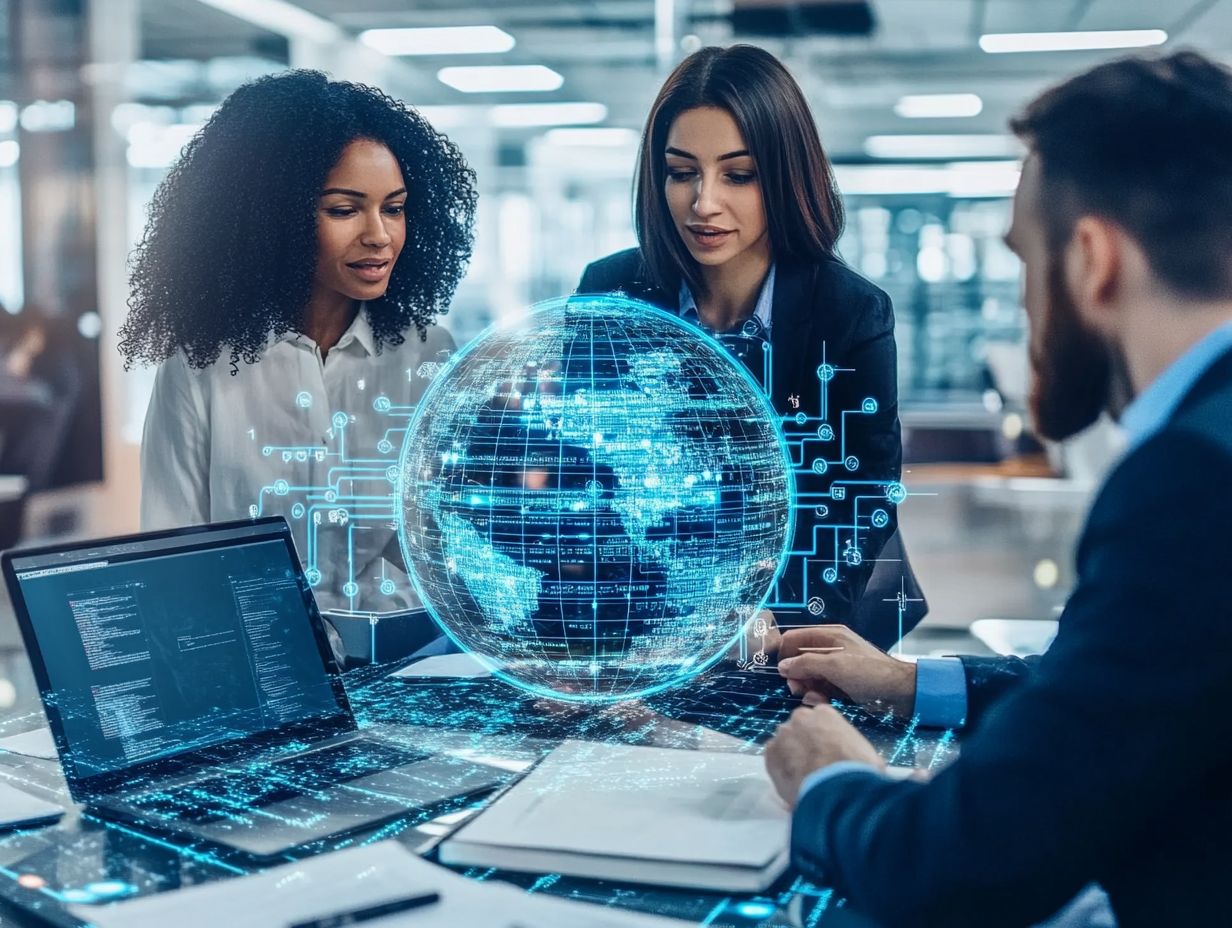
AI can create original works considered intellectual property, leading to debates about ownership and protection rights.
Does AI have any legal rights to intellectual property?
Currently, AI has no legal rights to intellectual property. However, discussions about potentially granting some form of legal rights to AI are ongoing.
How does AI affect the enforcement of international IP laws?
AI complicates the enforcement of international IP laws by creating works that are hard to identify and monitor for infringement. The use of AI in counterfeit products makes it difficult to determine responsibility for IP infringement.
What measures are being taken to address the impact of AI on international IP law?
Governments and international organizations are discussing and developing policies to address AI’s impact on international IP law, including ownership, protection, and enforcement of AI-created works, as seen in the role of social media in international IP law.
Is there a global consensus on the impact of AI on international IP law?
No, there is currently no global consensus on AI’s impact on international IP law. Different countries and organizations have varying opinions and approaches, making this a complex and ongoing discussion about the role of international law in IP litigation.


